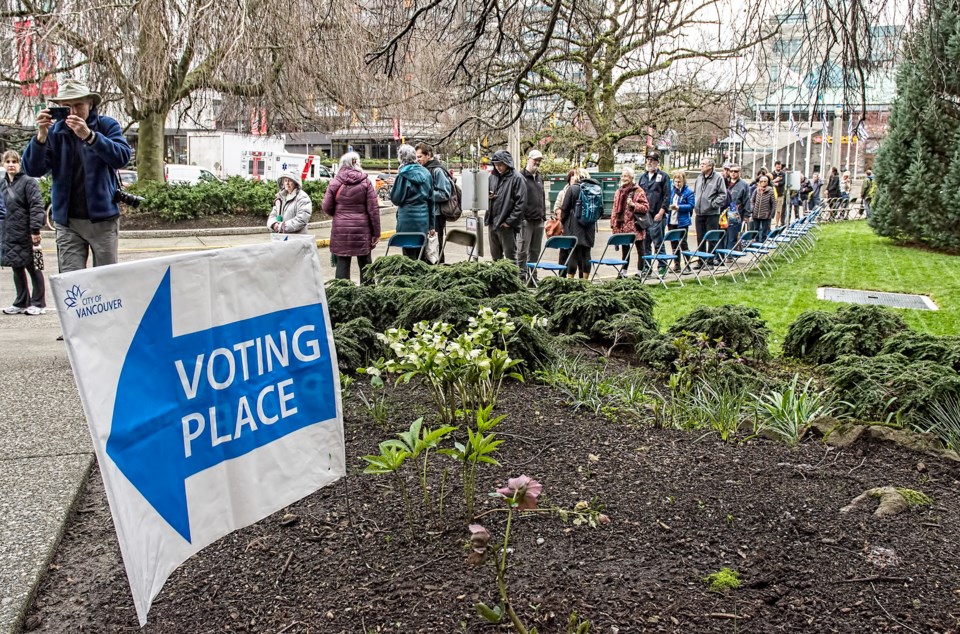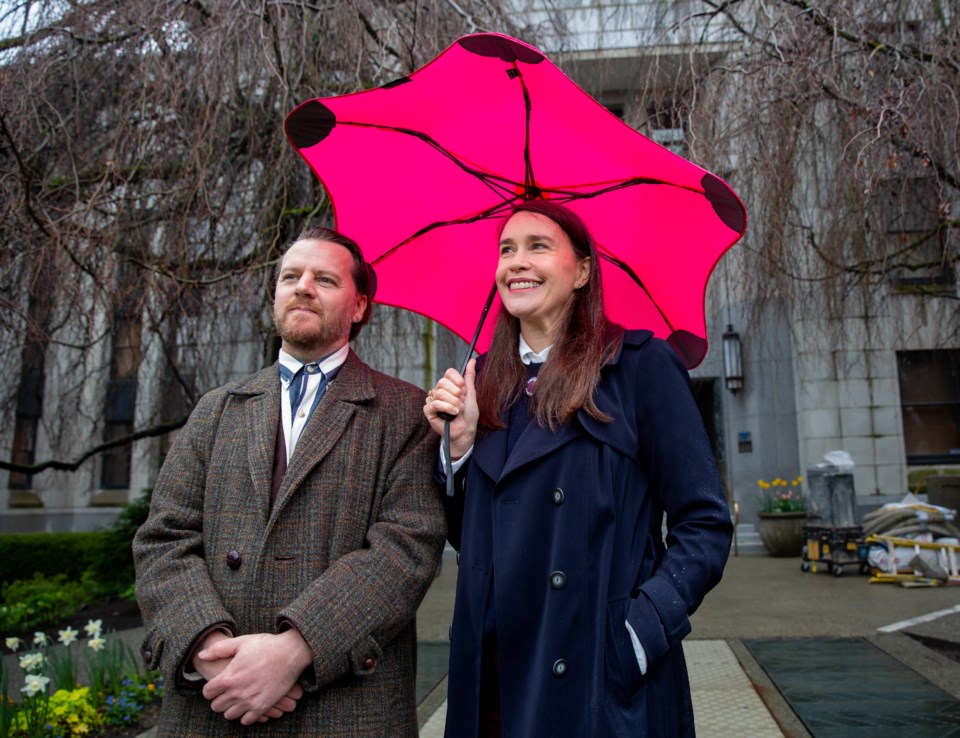The civic byelection held April 5 in Vancouver that saw Sean Orr of COPE and Lucy Maloney of OneCity elected to council cost $1.6 million, according to a city staff report released Wednesday.
The tab for the election was $400,000 more than the 2017 byelection, which cost $1.2 million and was held to elect one councillor and nine school trustees.
The report cited several reasons for the increase in cost in the 2025 byelection, including election workers’ wages increasing 56 per cent in the time between elections.
In response to a higher than anticipated voter turnout on the first day of advance voting, the city’s election office also had to recruit 45 additional election officials, bringing the total to 265 deployed on election day.
The city also lost workers to the federal election, which occurred April 28.
“Unlike general elections, byelections offer little lead time and fewer recruitment opportunities,” the report said. “Similarly, technical resources could not be expanded after initial orders for tabulators, voting equipment and laptops were finalized in January.”
Though staff considered adding more laptops following higher than normal advance voting turnout, there was not enough time to secure, configure and image them while meeting cybersecurity standards.

'Reduce barriers in future elections'
Voting day was plagued by long lineups where voters, in some cases, waited up to 3.5 hours to cast a ballot. The city cut the number of polling stations from 50 in 2017 to 25 in 2025 in an effort to reduce costs — a move based on low voter turnout in previous byelections.
“While these delays were not anticipated, they became a defining aspect of the 2025 byelection experience,” the report said. “Feedback from voters about these issues has been instrumental and will inform strategies to enhance service delivery and reduce barriers in future elections.”
The report emphasized the lineups were not because of faulty equipment.
“Targeted deployment of additional tabulators [vote counting units] to high-traffic voting places was used to help alleviate line congestion, noting that lineups experienced were typically at registration and not at the tabulator,” said the report, noting a ballot typically took no more than 10 seconds to scan and process at the tabulator.
Despite the challenges, voter turnout increased from 11 per cent in 2017 to 15 per cent this year, with 67,962 of 450,492 registered voters casting a ballot. On election day alone, the turnout was 54,854 voters, which exceeded expectations.
Like 2017, the city held two advance voting days at city hall, which saw 7,678 ballots cast for an 84 per cent increase over 2017. Another 5,430 voters chose their candidates via the vote-by-mail option.
Mail-in-voting
The city’s election staff was counting on the vote-by-mail option to bring in more ballots to offset the reduction in polling stations to 25.
Unlike 2017, where the mail-in option was only available to people unable to make it to a polling station or scheduled to be out of town, the 2025 byelection offered the option to all voters.
“The planned vote-by-mail turnout was expected to offset in-person voting at nearly 20 of the lowest turnout voting places from 2017; however, it ultimately offset 15 of those voting places,” the report said.
In 2017, the 44 of the 50 polling stations were at school facilities, which came at no cost to the city because the byelection was also to elect nine school trustees.
The same model in 2025 would have required an additional $350,000 to $400,000 for rental fees for 25 additional school facilities, staffing and equipment.
The byelection was necessary because Christine Boyle of OneCity resigned from council after she was elected as the NDP MLA for Vancouver-Little Mountain in last fall’s provincial election. The Greens' Adriane Carr then resigned her council seat in January to retire from politics.
Orr and Maloney were April 15 and belong to an 11-member council dominated by Mayor Ken Sim and his A小蓝视频 Vancouver colleagues. The next general election is in October 2026.





